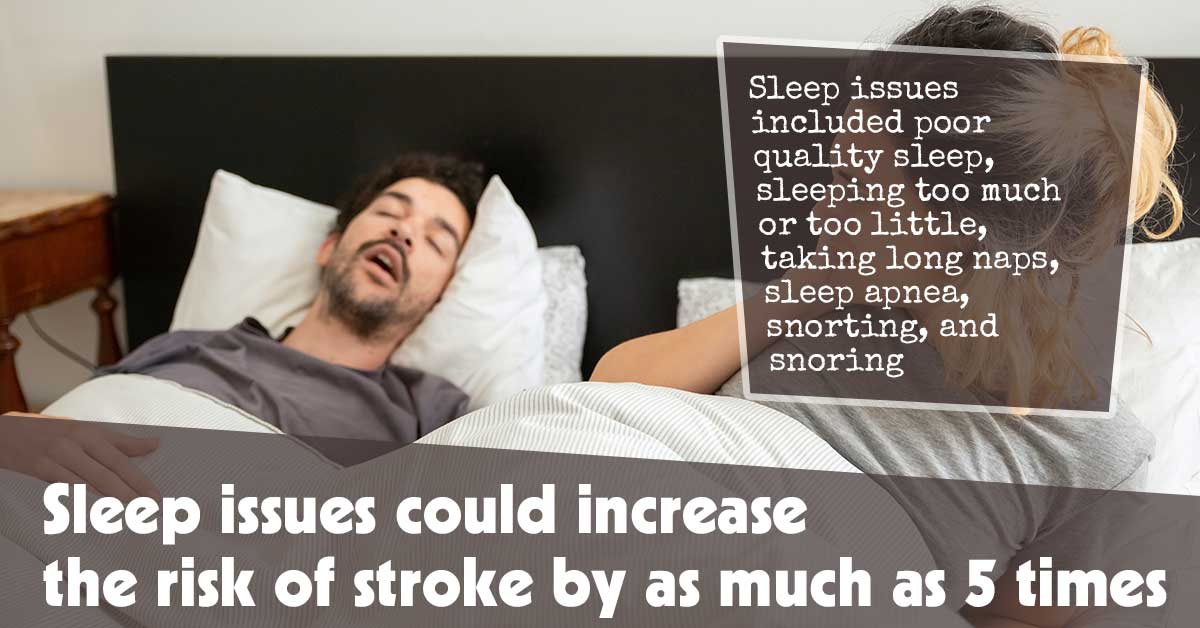According to research, individuals with sleep issues could have a higher risk of having a stroke. Sleep issues included poor quality sleep, sleeping too much or too little, taking long naps, sleep apnea, snorting, and snoring.1✅ JOURNAL REFERENCE
DOI: 10.1212/WNL.0000000000207249
Also, individuals who had 5 or more of these issues had an even higher stroke risk. The study only shows a link between sleep issues and stroke, it doesn’t show that sleeping issues cause stroke.
Not only do the results indicate that individual sleep issues could increase an individual’s stroke risk but having over 5 of these symptoms could lead to 5 times the risk of stroke in comparison to individuals who don’t have any sleep issues. The results indicate that sleep issues ought to be an area of focus for the prevention of stroke.
The study incorporated 4,496 individuals, which included 2,243 individuals who had experienced a stroke who were compared to 2,253 individuals who hadn’t experienced a stroke. The participants were aged 62 years on average.
They answered questions about their sleep behaviors such as sleep quality, sleep duration, breathing issues while sleeping, napping, snorting, and snoring.
Those sleeping for too long or too little had a higher risk of having a stroke compared to individuals sleeping an average amount. A total of 162 individuals who had experienced a stroke got less than 5 hours of sleep, in comparison to 43 individuals who didn’t experience a stroke. And 151 individuals who had a stroke got over 9 hours of sleep per night, in comparison to 84 individuals who didn’t have a stroke.
It was found that individuals sleeping less than 5 hours had 3 times the risk of having a stroke compared to individuals sleeping an average of 7 hours. Individuals sleeping over 9 hours had 2 times the risk of having a stroke compared to individuals sleeping 7 hours per night.
Individuals napping longer than 1 hour had an 88% higher risk of having a stroke compared to individuals who didn’t.
Breathing issues while sleeping were also examined, such as snoring, sleep apnea, and snorting. Individuals who snored had a 91% higher risk of having a stroke compared to individuals who didn’t and individuals who snorted had an almost 3 times higher risk of having a stroke compared to individuals who didn’t. Individuals with sleep apnea had an almost 3 times higher risk of having a stroke compared to individuals who didn’t.
The results were similar after accounting for other factors that might have affected the risk of stroke such as alcohol consumption, smoking, depression, and physical activity.
A study limitation was that individuals self-reported sleep issue symptoms, so not all the information might have been accurate.



